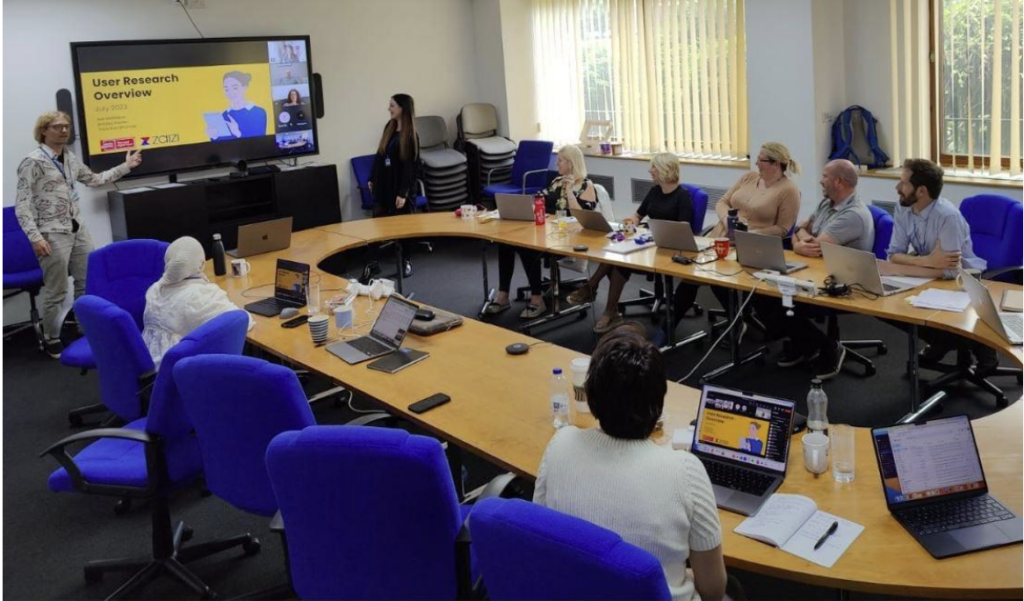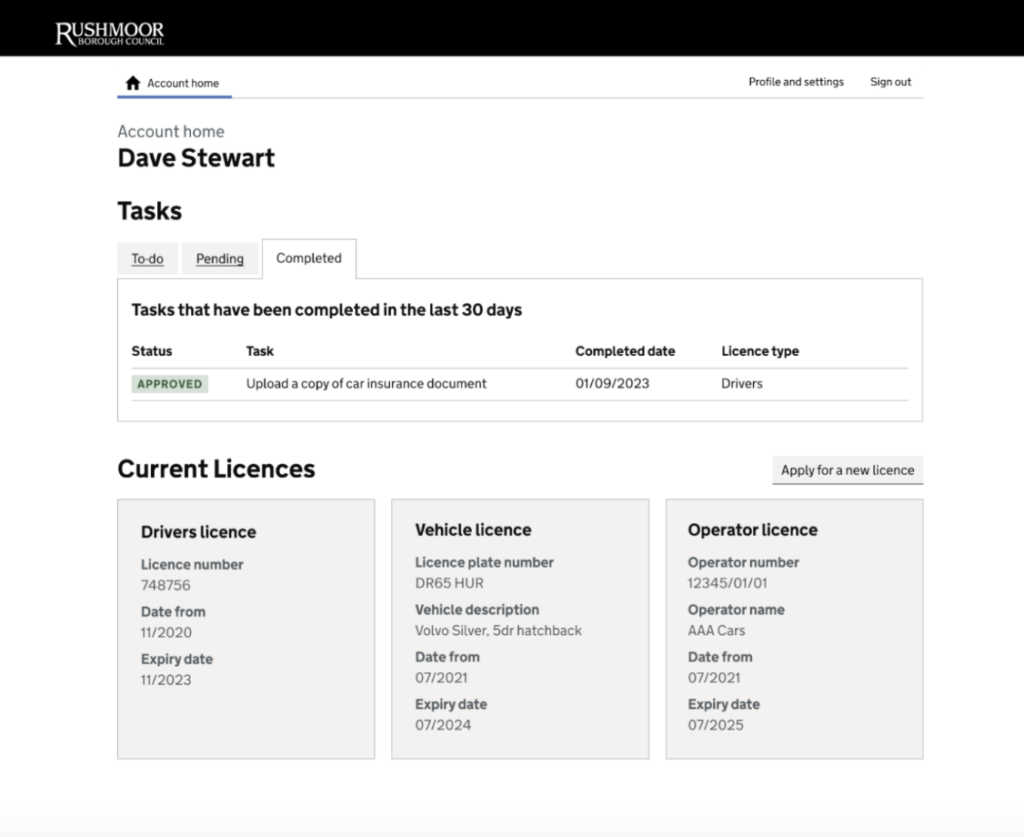
Helping local councils revamp taxi licensing to boost efficiencies and reduce costs
An alpha project helping councils explore and prototype a digital taxi licensing service that streamlines processes and improves the service.
The clients
Rushmoor Borough Council
Basingstoke and Deane Borough Council
North Tyneside Council
Hart Council
Zaizi’s role
Strategy
Agile
Product management
Service design
User research
UX & content design
Engineering
The client says…
“The team from Zaizi brought a range of expertise to this project, to both shape and deliver a successful user-research focused Alpha. I was delighted with their ability to forge consensus, share learning with the project partners, and to adapt their approach to the needs and priorities of the research at hand.”
Alex Stone, Business Analyst, Rushmoor Borough Council
The brief
A mix of district and metropolitan councils wanted to establish the potential and possibility of providing a digital service for Taxi Licensing. They needed a new system that would be easy to use, transparent, and efficient for everyone involved — from the office staff to the taxi drivers.
Licence holders must provide the right information at the right times to keep their licences valid and lawful. As they only interact with these processes intermittently, drivers struggle to take the necessary actions independently and on time.
Licensing staff help by contacting licence holders to notify them of upcoming due dates and other reminders to prompt action, maintain compliance and encourage good practice. But communication challenges lead to errors, lost time, and frustration. Drivers may even lose the ability to work because of this.
The councils estimate a national digital taxi service could save around 305,000 staff hours, with potential cost savings of over £10 million. The councils want to reinvest the time savings into other key public protection efforts and outcomes.
Initial discovery research showed licence holders wanted an online system, but there is no viable solution in the market.
Zaizi ran the Local Digital funded alpha project, led by Rushmoor Borough Council in partnership with Basingstoke & Deane, Hart and North Tyneside councils. The goal was to explore a taxi licensing prototype that meets user needs and could scale up.
The delivery
After the initial discovery phase laid the groundwork, we defined the project scope and undertook time-boxed sprints with a multidisciplinary team.
We held intensive workshops around user research and service processes, interrogating the problem space and undertaking stakeholder mapping.

During the phase, we:
- developed a research plan to test the alpha hypotheses
- used several innovative approaches to recruit research participants
- mapped user journeys, creating user stories, and prioritising needs for prototyping
- explored each council’s environments, requirements, and constraints, including team needs for digital service implementation
- identified differences that could impact service design and implementation
- built prototype and tested with stakeholders (licence holders, licensing officers, administrators, suppliers)
- “worked in the open” and shared progress and planning output throughout the alpha phase through regular comms.
We continuously challenged and tested our riskiest assumptions through user research, prototyping, and iterative feedback to ensure the viability and effectiveness of our proposed solutions.
The outcome
Our research, prototyping, and user testing revealed several key insights. We found that:
- a simple process boosted proactivity and understanding amongst the licence holders
- a user-friendly service earned users’ trust and enthusiasm. Our design proved desirable, with users suggesting minor improvements
- some alignment possibilities between the councils emerged, though any implementation would need to consider each council’s workflow.

We recommended that the councils use the beta phase to explore how the customisation of the service could optimise efficiencies for the individual councils.
Upon completion of the alpha project, we:
- documented research, prototypes, tests, and findings in a final user research report
- created an interactive, shareable, tested digital prototype
- identified measures to optimise and evaluate the product, including user research, experience and iterative improvement
- presented a product roadmap and benefits case for a potential beta project
- shared our experience of agile, iterative methods, tools and templates, to maximise the development of skills and knowledge of local authority staff.
If you’d like to find out more about our work, please get in touch.
-

Enhancing care quality through data-driven insights and AI integration
-

Global award-winning customs innovation —Border Force
-

Our impact on digital government services in 2024
-

Wrap-up: Our impact on digital government services in 2023
-

Secure and cost-effective archiving of court judgments with serverless technology
-

From a stalled legacy system project to award-winning success
